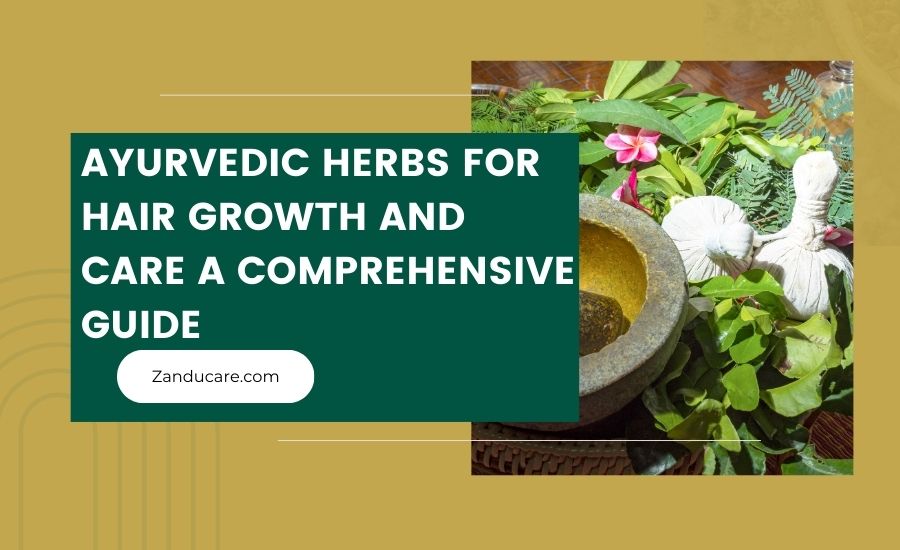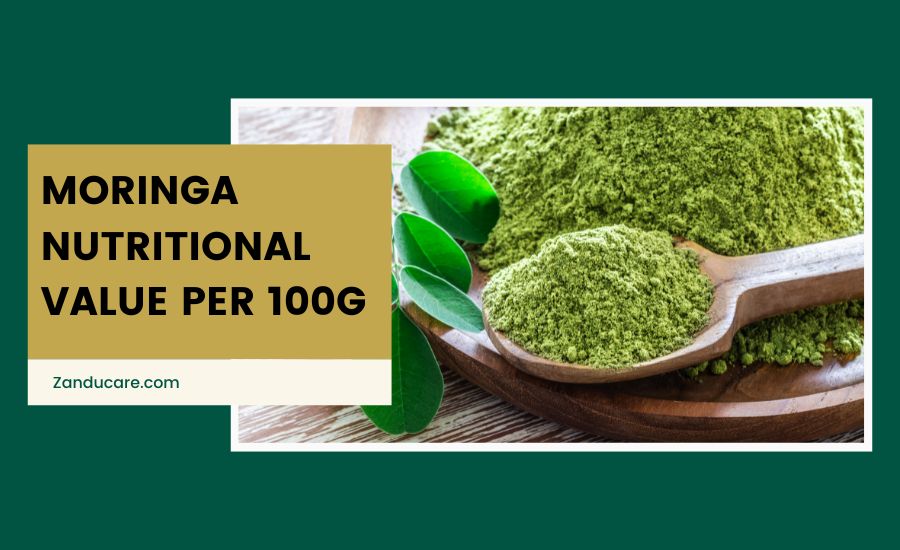
Top 20 Ayurvedic Herbs for Hair Growth and Care: A Comprehensive Guide
The ancient Indian medical system known as Ayurveda has long highlighted the value of natural treatments for maintaining general health, including healthy hair. Historically, numerous plants have been used in Ayurvedic techniques to encourage hair growth, strength, and lustre. Ayurvedic herbs provide efficacious remedies for hair problems without the negative effects of chemical products in today's environment, where natural and holistic therapies are becoming increasingly popular.
The top 20 Ayurvedic herbs known for their advantages in hair care and growth are examined in this post. Every herb has special qualities that can help with various hair issues, such as promoting hair growth, avoiding dandruff, and preserving the scalp's health. Explore this thorough guide to learn how these tried-and-true herbs can improve your hair care regimen in a healthy, natural way.
|
Did you know?
|
Understanding Ayurvedic hair care

Ancient Indian medicine is the foundation of Ayurvedic hair treatment, emphasising natural and holistic methods. Balancing the body's doshas (Vata, Pitta, and Kapha) is central to Ayurvedic hair care. It encourages healthy hair development and prevents problems like dandruff, premature greying, and hair loss. Ayurvedic hair care involves utilising natural shampoos derived from herbs, massaging the scalp with herbal oils, and eating a balanced diet.
Using Ayurvedic herbs for hair health has various advantages. Amla (Indian gooseberry) improves shine, strengthens hair roots, and lessens hair fall. Bhringraj has a reputation for accelerating hair development and delaying greying. Owing to their antibacterial qualities, neem and tulsi aid in the fight against dandruff and scalp infections. Shikakai keeps the scalp clear as a natural cleanser without removing its natural oils. More robust, healthier hair can result from using these herbs regularly.

Top 20 Ayurvedic herbs for hair growth and care
Below are the best 20 Ayurvedic herbs for hair growth and care:
|
Herb |
Usage |
|
Bhringraj |
Bhringraj oil is applied to the scalp to promote hair growth and prevent premature greying. |
|
Amla |
Amla powder is mixed with water or oil and applied to the scalp to strengthen hair roots and prevent hair fall. |
|
Brahmi |
Brahmi oil is massaged onto the scalp to nourish hair follicles and reduce split ends. |
|
Neem |
Neem leaves are boiled and used as a rinse to treat dandruff and scalp infections. |
|
Hibiscus |
Hibiscus flowers and leaves are ground into a paste and applied to the scalp to stimulate hair growth. |
|
Fenugreek |
Fenugreek seeds are soaked overnight, ground into a paste, and applied to the scalp to reduce hair loss. |
|
Aloe Vera |
Aloe vera gel is applied directly to the scalp to moisturise and soothe irritated skin. |
|
Shikakai |
Shikakai powder is mixed with water to form a paste and used as a natural shampoo to cleanse the scalp. |
|
Reetha |
Reetha (soapnut) is boiled and the liquid is used as a natural cleanser to wash hair. |
|
Ashwagandha |
Ashwagandha powder is mixed with oil and applied to the scalp to improve blood circulation and hair growth. |
|
Tulsi |
Tulsi leaves are ground into a paste and applied to the scalp to treat infections and promote hair growth. |
|
Curry Leaves |
Curry leaves are boiled in coconut oil and applied to the scalp to strengthen hair roots and prevent hair fall. |
|
Licorice Root |
Licorice root powder is mixed with water and applied to the scalp to soothe scalp irritation and dandruff. |
|
Jatamansi |
Jatamansi powder is mixed with oil and applied to the scalp to reduce hair loss and enhance hair growth. |
|
Moringa |
Moringa leaves are ground into a paste and applied to the scalp to nourish hair follicles and promote hair growth. |
|
Sesame |
Sesame oil is used as a base oil for herbal hair treatments to strengthen hair and reduce split ends. |
|
Coconut |
Coconut oil is applied to the scalp to moisturise hair and prevent protein loss. |
|
Mustard |
Mustard oil is heated with fenugreek seeds and applied to the scalp to stimulate hair growth and prevent hair fall. |
|
Henna |
Henna powder is mixed with water or oil and applied to the hair to condition and color hair naturally. |
|
Ginger |
Ginger juice is mixed with olive oil and applied to the scalp to improve blood circulation and promote hair growth. |
Bhringraj (Eclipta alba)

Bhringaraj strengthens hair follicles and improves hair condition by increasing blood flow to the scalp and roots. It has also been demonstrated to enhance hair luster and texture. Warm Bhringaraj oil should be massaged into the scalp twice a week for optimal benefits.
Amla (Indian Gooseberry)
Amla is a natural immune system enhancer that supports healthy hair. Its abundance of important fatty acids effectively strengthens hair follicles, leaving your hair glossy and robust. Due to its high iron concentration, amla promotes hair growth and shields the scalp from becoming dry and irritated, which can cause hair loss. To get the advantages, mix amla powder and lemon juice to form a paste that you may apply to your scalp regularly.
Brahmi (Bacopa monnieri)
You can utilise every part of the Brahmi plant, from the roots to the leaves, to massage and relax your scalp. Rich in antioxidants, it can nourish the hair shaft, stop hair loss, lessen dandruff, and thoroughly clean the scalp. Apply Brahmi oil to your hair or look for shampoos and conditioners enriched with this herb's benefits. Use Brahmi oil to massage your scalp after a demanding day to uncover tension, anxiety, and insomnia.
Neem (Azadirachta indica)
Strong anti-inflammatory qualities and increased blood flow to the scalp are two benefits of neem that may promote the growth of thick, healthy hair.
Neem's antimicrobial qualities make it an ideal treatment for inflamed, flaky, or itching scalps. Regular neem can help strengthen the roots, clear pores, and lessen inflammation. For optimal effects, apply topically or as a supplement.
Hibiscus (Hibiscus rosa-sinensis)
Flavonoids, amino acids, antioxidants, mucilage fibre, and vitamin C are all present in hibiscus leaves and extracts and are essential for healthy hair. A 2003 study found that hibiscus leaf extract improved hair quality, gloss, and growth. Its antimicrobial qualities are also present.
Therefore, select a shampoo enriched with hibiscus to achieve thick, healthy, and voluminous hair if you have dry, damaged hair and a flaky scalp. You can also think about making hibiscus tea a part of your regular regimen.
Fenugreek (Methi)
Methi seeds, sometimes called fenugreek, are high in folic acid and vitamins that encourage hair growth. They also contain nicotinic acid, which successfully regulates issues related to hair loss. As a result, methi seeds are regarded as beneficial ayurvedic herbs for hair development. The seeds nourish the scalp, which speeds up hair growth. One can combine methi seeds with coconut oil to promote healthy hair growth and apply the mixture to the scalp.
Aloe Vera (Aloe barbadensis)
Aloe vera is thought to be one of the greatest Ayurvedic herbs for hair loss because of its moisturising qualities and nourishing elements. It is abundant in proteolytic enzymes and amino acids, both of which are essential for strong hair and normal growth. Aloe vera's constituents encourage hair growth, leave hair silky and lustrous, and stave off dandruff and itching.
Shikakai (Acacia Concinna)
Rich in vitamins and antioxidants, shikakai aids in hair development. Everyone uses this ayurvedic medication to stop hair loss and grow hair. Following a few easy steps at home can produce this Ayurvedic therapy for hair loss and renewal. Combine the shikakai powder and coconut oil in a dark spot for fifteen days. After that, to notice hair regrowth, rub the oil into your scalp at least twice a week.
Reetha (Soapnut)
Reetha, or soapnut, offers key benefits for natural cleansing and conditioning. It gently cleanses the scalp, removes dandruff, and adds shine to hair. To use Reetha for hair washing, soak a handful of soapnuts in water overnight. In the morning, boil the mixture until it becomes soapy. Strain the liquid and let it cool. Apply this liquid to your hair, massage it into the scalp, and leave it on for a few minutes before rinsing thoroughly. Regular use of Reetha can lead to healthier, shinier, and more manageable hair.
Ashwagandha (Withania somnifera)

Ashwagandha aids in controlling cortisol levels in the body. Its naturally uplifting ingredients can help manage stress and anxiety, which in turn can help minimise hair loss. Ashwagandha has inherent sources of Potassium, Iron, Vitamin C, Tyrosine, and Iron, which makes it an ideal substance for regulating hair loss and fortifying the roots.
This adaptable herb can prevent and treat scalp infections and dandruff due to its antimicrobial qualities.
Tulsi (Holy Basil)
Tulsi, sometimes referred to as Holy Basil, is highly valued in Ayurvedic treatment and comes from India. It offers a healthy scalp by promoting hair growth, such as lowering dandruff, easing irritation on the scalp, and strengthening hair. Tulsi leaves can be ground into a paste and applied to the scalp, or you can use oil infused with Tulsi to give your scalp a healthy massage. It is a useful natural hair care solution since regular application promotes hair growth and enhances the general health of the scalp.
Curry Leaves (Murraya Koenigii)
Native to Sri Lanka and India, curry leaves (Murraya Koenigii) are prized for their fragrant properties. Because they contain a high concentration of antioxidants, vitamins, and minerals, they have important benefits for delaying the onset of grey hair. These nutrients support general scalp health, preserve natural hair colour, and rejuvenate hair follicles. Curry leaves can treat hair by boiling a few fresh leaves in coconut oil until they turn black, straining the mixture, and then rubbing the oil over your hair and scalp. Apply and let it sit for at least half an hour, then use a gentle shampoo to remove it.
Licorice Root (Yashtimadhu)
It provides you with the highest-quality hair because it contains several nutrients and antioxidants. Ayurveda suggests that using or ingesting licorice powder will assist you in avoiding going grey too soon.
The easiest way to use this powder is to combine it with two tablespoons of olive oil and a tablespoon of curd. After 20 minutes, leave it in your hair and rinse with warm water.
Jatamansi (Spikenard)
One of the best herbs for hair loss is jatamansi. Increasing blood flow stimulates hair growth and helps treat dandruff by restoring the scalp's natural pH balance.
Additionally, jatamansi contains anti-inflammatory qualities that, by avoiding clogged pores, can lessen scalp irritation and promote a healthy, voluminous mane. Ayurvedic shampoos and hair oils frequently contain jatamansi, which can also be taken as a supplement to stimulate hair growth.
Moringa (Moringa Oleifera)
Moringa (Moringa Oleifera) is a nutrient-rich plant native to India. It nourishes hair and promotes growth with its high content of vitamins A and E, zinc, and essential amino acids. These nutrients strengthen hair, prevent hair loss, and stimulate growth. To use Moringa for hair care, apply Moringa oil directly to your scalp, use Moringa-infused hair products, or consume Moringa powder in smoothies or meals. Regular use will help you achieve healthier, stronger hair.
Sesame (Sesamum indicum)
The blooming plant known as sesame (Sesamum indicum) is native to India and Africa. It yields high-oil seed production. In addition to encouraging growth and decreasing breakage, sesame oil fortifies and nourishes hair. It also helps to prevent dandruff and hydrates the scalp. When applying sesame oil to your hair, warm up a small quantity and work it into your scalp and hair. Let it sit for at least half an hour, then use shampoo to remove it. Once or twice a week, repeat this procedure for optimal effects.
Coconut (Cocos nucifera)

Because of its strong antibacterial and antifungal qualities, coconut aids in the growth of new hair. Grate some coconut and combine it with black pepper, methi, and coconut oil as an ayurvedic hair growth remedy. After applying the mixture to your hair and scalp, give it a half-hour. To observe the effects, apply this ayurvedic treatment three times every week.
Mustard (Brassica nigra)
The Mediterranean region is the origin of mustard (Brassica nigra), which has been utilised for ages due to its health benefits. Its high vitamin, mineral, and fatty acid content makes it well known for promoting hair development. Mustard oil stimulates hair follicles, increases blood flow to the scalp, and stops hair loss.
Warm the mustard oil a little before massaging it into your scalp to care for your hair. After using it for at least half an hour, remove it with a gentle shampoo. Regular use can achieve stronger, healthier hair.
Henna (Lawsonia Inermis)
The plant, commonly called henna or mehendi, is scientifically named "lawsonia inermis." It is well-known for colouring hair and creating exquisite designs on ladies' palms, hands, and feet. However, it contains several advantageous characteristics, including astringent and antibacterial ones, which make it quite helpful for enhancing hair health. It is frequently applied to your hair and scalp as a paste to prevent blockage of the pores in your scalp by eliminating any excess oil.
Ginger (Zingiber officinale)
The Southeast Asian root ginger (Zingiber officinale) is prized for its potent flavour and scent. By increasing blood flow, it stops hair loss and encourages hair growth.Grate fresh ginger and combine it with carrier oils, such as coconut or olive oil, to use it for hair care. After massaging this concoction into your scalp, let it sit for half an hour before washing it off. Frequent use helps lessen dandruff, strengthen hair, and enhance shine. Because of its inherent qualities, ginger is a great option for keeping hair healthy.
Also, check our 100% natural hair care products:
- Natural hair fall control oils
- Mineral oil-free hair oil
- Non-greasy hair oil
- Hair oil for dry hair
- Hair oils for colored treated hair
- Hair oils for frizzy hair
Conclusion
Ayurvedic herbs offer numerous benefits for hair growth and care. Herbs like amla, turmeric, Bhringraj, and fenugreek nourish the scalp, strengthen hair roots, and enhance hair texture. They help reduce hair fall, dandruff, and premature greying. These natural remedies can lead to healthier, shinier, and more robust hair.
Incorporate these Ayurvedic herbs into your daily hair care routine to see optimal results. Regularly using herbal oils, masks, and rinses can significantly improve hair health. Embrace the natural power of Ayurveda for a holistic approach to hair care and enjoy the long-term benefits of these time-tested remedies.
FAQs
1. Which Ayurvedic herb is best for hair growth?
Amla (Indian gooseberry) is highly regarded for its ability to promote hair growth. It strengthens hair follicles and prevents premature greying.
2. How can I use Amla for hair care?
Amla can be used in various ways. It can strengthen and nourish hair when applied topically to the scalp and hair or consumed as juice or powder.
3. What are the benefits of Bhringraj for hair?
Bhringraj stimulates hair follicles, promotes blood circulation in the scalp, and stops hair loss. It also aids in preserving hair's texture and colour.
4. Can fenugreek help in hair growth?
Yes, fenugreek seeds are rich in proteins and nicotinic acid, which promote hair growth, strengthen hair roots, and prevent hair loss.
5. How often should I use neem oil on my hair?
Apply neem oil one or two times every week. It aids in treating dandruff and scalp infections and encourages healthy hair development.
6. Are there any side effects of using Ayurvedic herbs for hair care?
When used appropriately, ayurvedic herbs usually have minimal negative effects. However, some people may experience allergic reactions or irritate their scalps. Always test a patch before using it heavily.
7. How do I prepare a hibiscus hair mask?
Prepare a hibiscus hair mask by blending fresh hibiscus flowers with a carrier oil, such as coconut oil or yoghurt. Apply this paste to your hair and scalp, leave it for 30 minutes, and rinse thoroughly.
8. Is ashwagandha effective for reducing hair fall?
Because of its anti-inflammatory qualities, ashwagandha can help lessen hair loss brought on by hormone imbalances or stress. It fortifies hair follicles and supports healthy scalp function.
9. What is the best way to use Reetha as a shampoo?
Reetha, or soapnut, should be boiled in water to produce a soapy liquid. Use this liquid for a natural shampoo that cleanses hair without depleting it of natural oils. Use water to rinse thorughly.
10. Can I use henna on chemically treated hair?
Yes, henna is safe to use on chemically treated hair. It conditions and adds shine to hair while also providing a natural colour boost.
References:
- Bhringraj oil is applied to the scalp to promote hair growth and prevent premature greying. (https://d1wqtxts1xzle7.cloudfront.net/)
- Methi seeds, sometimes called fenugreek, are high in folic acid and vitamins that encourage hair growth. (https://www.researchgate.net/)
- By increasing blood flow, it stops hair loss and encourages hair growth. (https://www.researchgate.net/)
- Ayurvedic herbs offer numerous benefits for hair growth and care. Herbs like amla, turmeric, Bhringraj, and fenugreek nourish the scalp, strengthen hair roots, and enhance hair texture.(https://nopr.niscpr.res.in)





Leave a comment
This site is protected by hCaptcha and the hCaptcha Privacy Policy and Terms of Service apply.